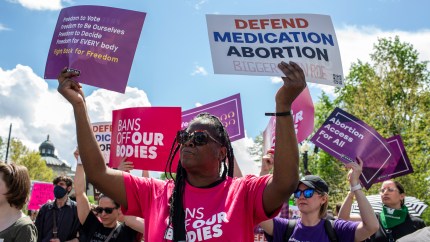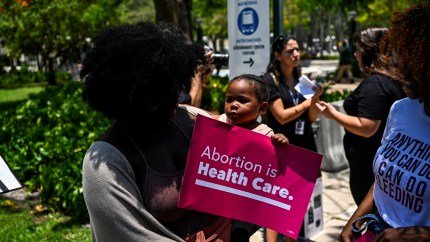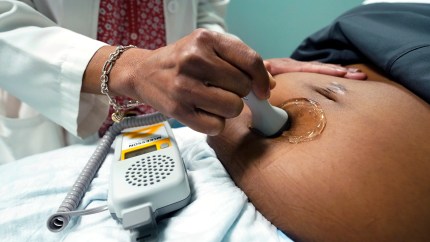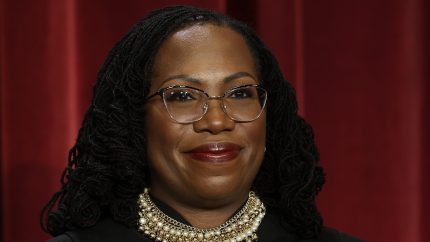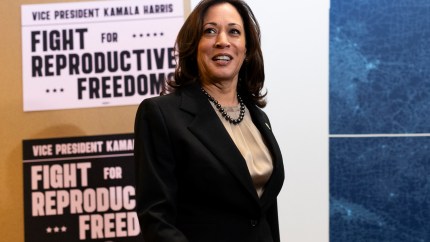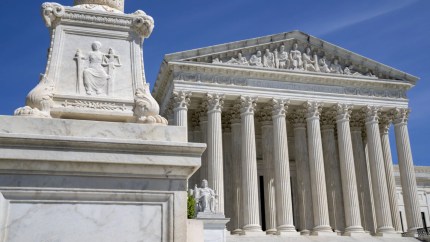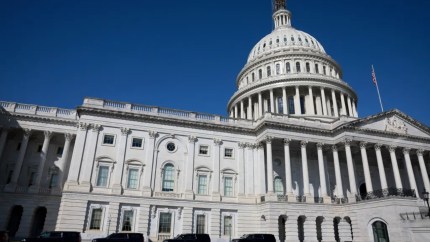Florida’s six-week ban will disproportionately harm Black Americans. Voters could change that in November
“These bans really affect people of color, the LGBT community, folks who are disabled, and Latinas,” said Lupe M. Rodríguez, executive director of the National Latina Institute for Reproductive Justice.
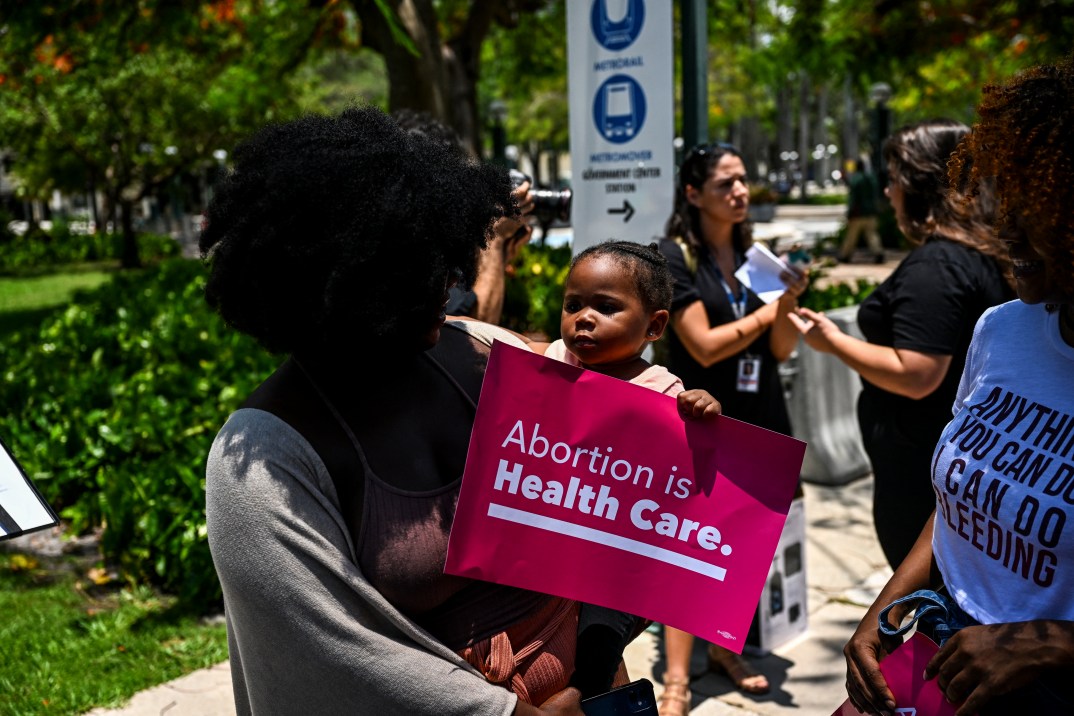
After Florida enacted one of the strictest abortion bans in the country earlier this week, lawmakers and advocates are decrying how it will disproportionately harm Black and brown Americans. The ban’s ultimate fate, however, lies in the hands of voters in November.
On Monday, the majority-conservative Florida Supreme Court voted to keep in place the state’s 15-week abortion ban that Republican Gov. Ron DeSantis signed into law in 2022. The bill also triggered a six-week abortion ban that DeSantis signed last year to go into effect next month.
The abortion ban would forbid physicians from terminating pregnancies after six weeks of gestation. However, if the pregnancy is life-threatening, doctors can end the pregnancy to save an individual’s life. The ban does not apply to cases that involve fetal abnormalities, incest, or rape.
Lupe M. Rodríguez, executive director of the National Latina Institute for Reproductive Justice, told theGrio she is “outraged” by the court’s decision. She said the Florida government is putting “politics over health.”
“These bans really affect people of color, the LGBT community, folks who are disabled, and Latinas,” Rodríguez added.
The National Institutes of Health (NIH) found that most individuals become aware of their pregnancy a little after 5 weeks of gestation. However, other factors could delay detection for weeks, such as mistimed pregnancies, income status, or lack of education.
Jennifer Driver, senior director of reproductive rights at State Innovation Exchange, where she leads the Reproductive Freedom Leadership Council, told theGrio that bans like the one in Florida reflect the actions of “far-right ideology” and ignore the desire of the people in the state.
In a separate decision on Monday, the Florida Supreme Court ruled that voters will have an opportunity to vote on a November ballot measure that could reverse the six-week abortion ban.
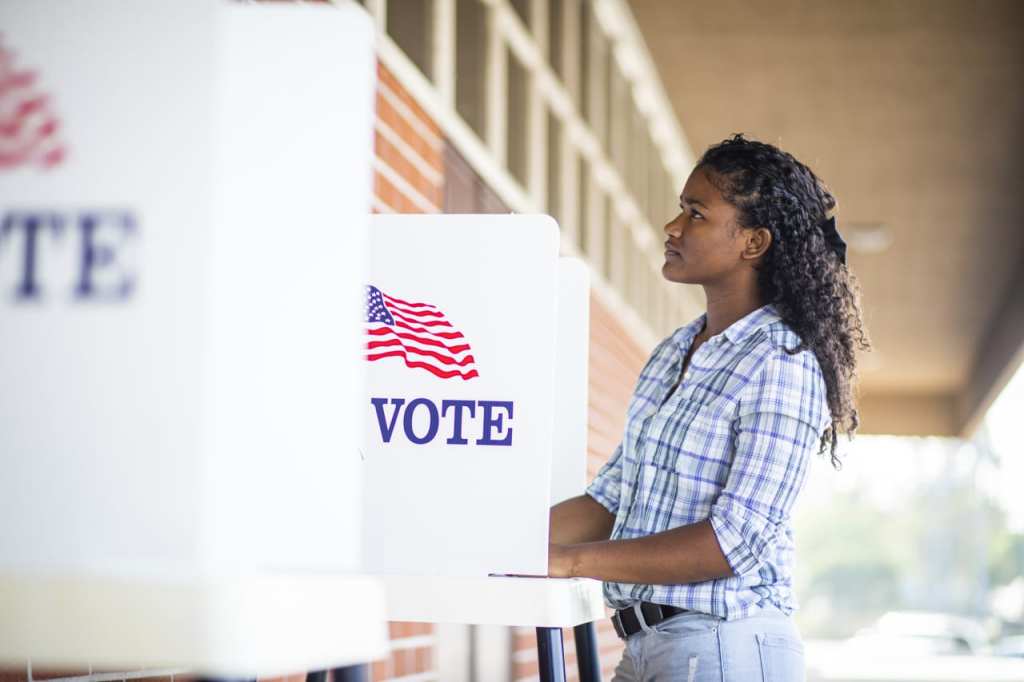
Amendment 4, or “Amendment to Limit Government Interference with Abortion,” will appear on the ballot, which states, “No law shall prohibit, penalize, delay or restrict abortion before viability or when necessary to protect the patient’s health, as determined by the patient’s healthcare provider.” Driver said she is optimistic that voters could undo the six-week abortion law.
“In every state where there was a ballot initiative to protect abortion rights, voters showed up and voted in favor of reproductive freedom,” Driver noted.
“Although states like Florida are Republican-led, we know that an overwhelming majority are showing up to the polls to secure abortion rights,” she said.
In 2022, the U.S. Supreme Court handed down the Dobbs v. Jackson Women’s Health Organization decision, which granted states sole authority to establish their own abortion laws. In recent years, Republican-led states like Florida, Alabama, Texas, Georgia, Idaho, Tennessee, and Mississippi have enacted some of the strictest laws in the country.
Rodríguez of the National Latina Institute for Reproductive Justice said many Republican-led states in the U.S. have enacted abortion bans as a result of “politicians who are out of touch with their population.”
“Many of these states have been plagued by decades of gerrymandering that have diluted the political power of the communities in those states … leading to abortion bans that the majority of the population don’t support,” said Rodríguez.
Driver of State Innovation Exchange said anti-abortion states lack “the representation that is needed in the legislature to put abortion protections in place.”
“Instead, these states allow anti-abortion legislatures to have control over the people that they govern,” said Driver.
Although Florida has had a 15-week abortion ban in place, the Guttmacher Institute found that, in 2023, more than 9,000 pregnant people living in neighboring states like Texas, Mississippi, and Georgia – which have total or near total abortion bans – have traveled to the Sunshine State to terminate their pregnancies.
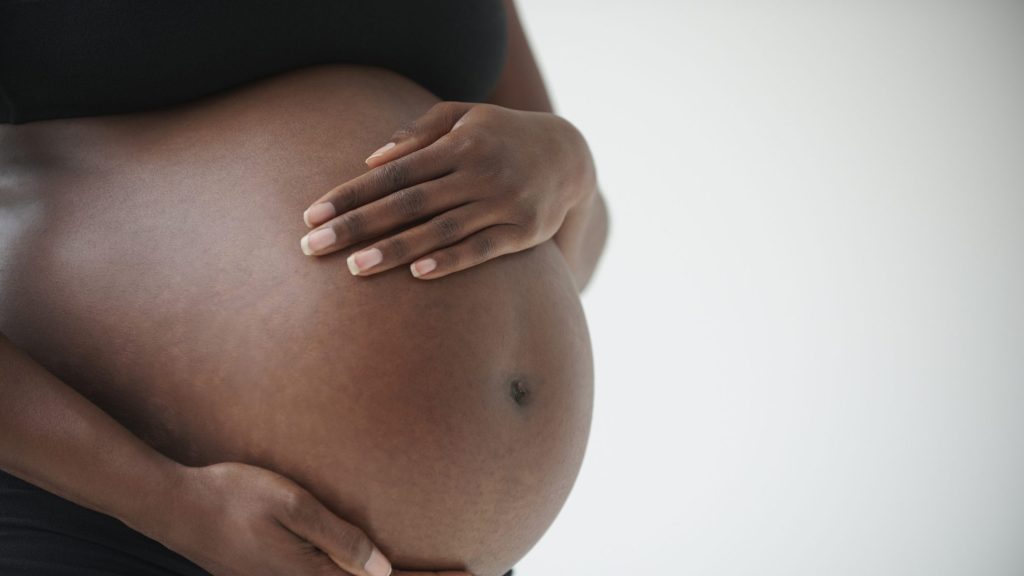
However, that will soon come to an end next month when Florida’s six-week abortion ban kicks in.
Experts contend that individuals from marginalized communities living in Florida and neighboring states will be impacted the most by this legislation. They will have the financial burden of traveling to other parts of the country to seek abortion care.
Driver of State Innovation Exchange told theGrio that Florida “was the hub of where people in the South could get abortion care.”
She added that people will now have to travel to North Carolina and Virginia to seek abortion care. However, this will have devastating consequences for “people who are seeking to make ends meet, immigrants, young people and largely Black and brown folks in the South.”
Rodríguez of the National Latina Institute for Reproductive Justice told theGrio that individuals from marginalized communities will face barriers trying to find “child care, money to travel and schedule time off.”
“For most people who are trying to make ends meet, this will be hard to come by,” said Rodríguez.
Despite the challenges that marginalized communities are now faced with, Rodríguez believes there is a glimmer of hope for voters, who could have the final say on whether the abortion ban remains in place this November.
Recommended Stories
Never miss a beat: Get our daily stories straight to your inbox with theGrio’s newsletter.

